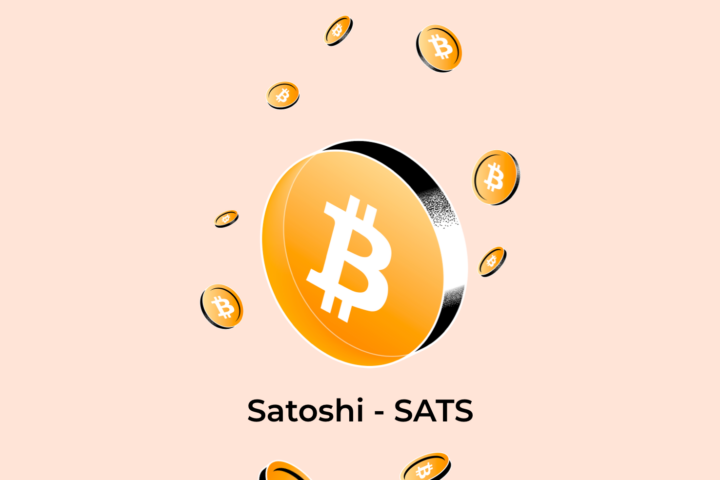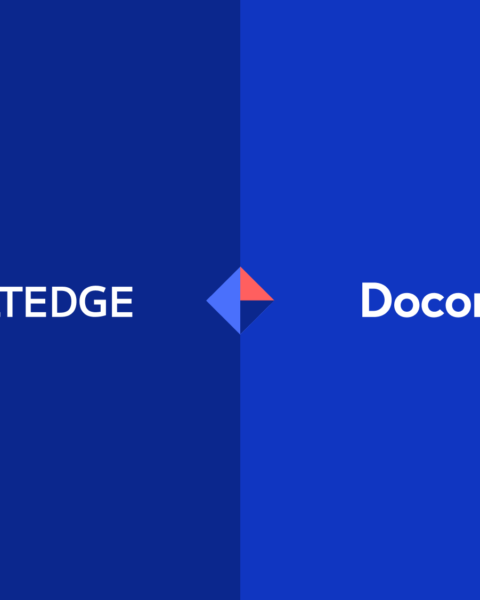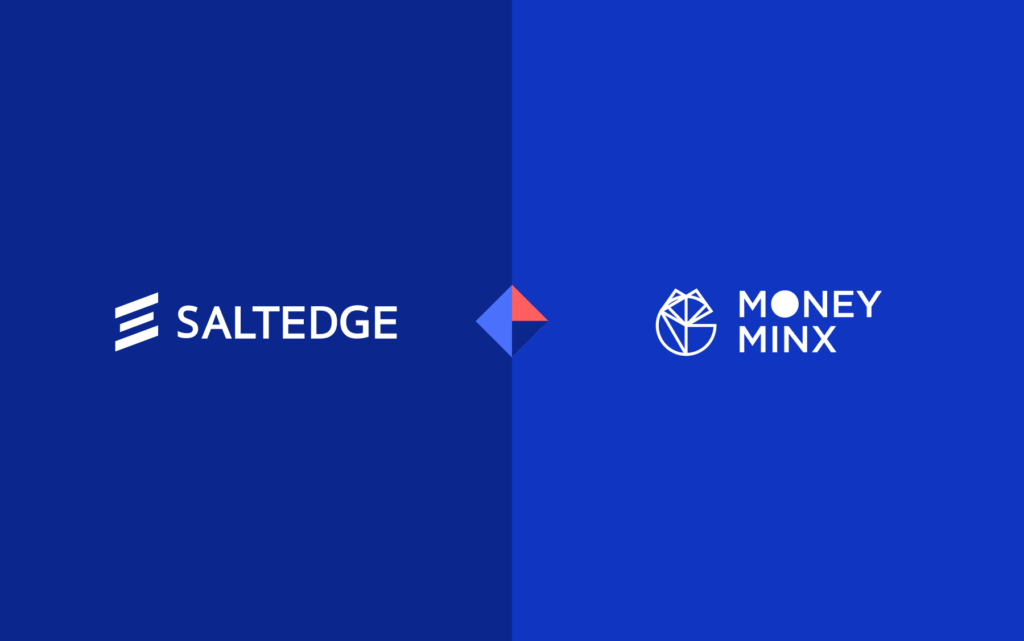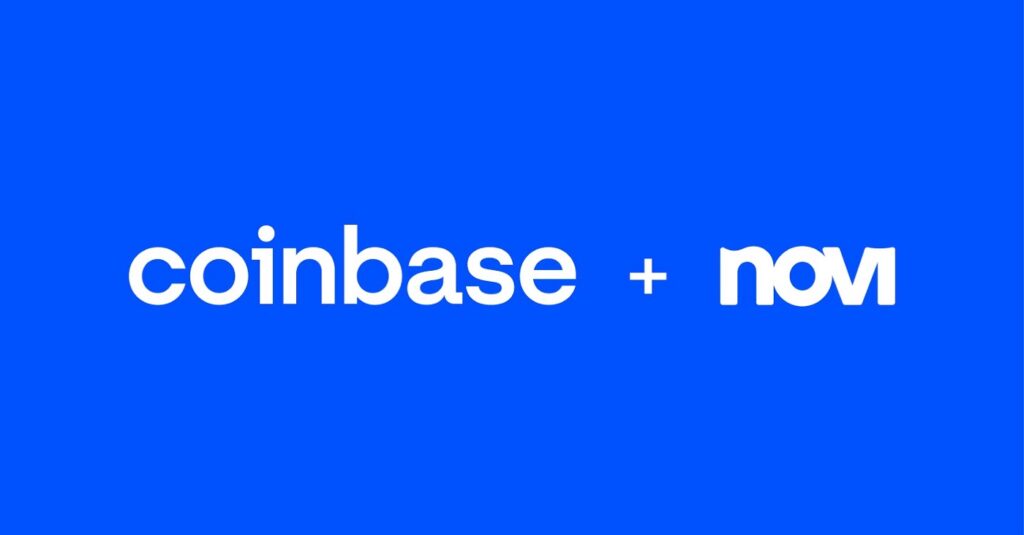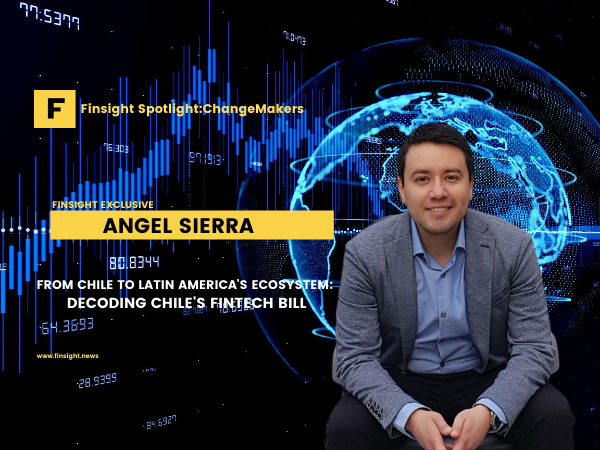Switching to the Satoshi standard and Lightning Network connectivity makes Bitcoin more tangible and easy to use. AAX has made the first move in the crypto space, already providing BTC to SAT
Nigeria’s eNaira CBDC Goes Live
Nigeria on Monday became the first African nation to launch a digital currency – the eNaira – a move its leaders said will expand access to banking, enable more remittances and even grow the economy by billions of dollars.
Africa’s most populous nation joins the Bahamas, the first to launch a general-purpose central bank digital currency, known as the Sand Dollar, in October. China has ongoing trials and Switzerland and the Bank of France have announced Europe’s first cross-border experiment.
But experts and cryptocurrency users in the continent’s biggest economy say the fact that there are more questions than answers regarding the eNaira – and a large amount of worry over the consistency of Central Bank (CBN) rules – means the government faces a tough path to make the eNaira a success.
Central Bank Governor Godwin Emefiele said during Monday’s launch that there had been “overwhelming interest and encouraging response”, adding that 33 banks, 2,000 customers and 120 merchants had already registered successfully with the platform, which is available via an app on Apple and Android.
Some 200 million nairas’ worth of eNaira, which will maintain parity with the traditional currency, has been issued to financial institutions, he said. President Muhammadu Buhari said use of the currency could grow the economy by $29 billion over ten years, enable direct government welfare payments and even increase the tax base.
Nigeria’s young, tech-savvy population has eagerly adopted digital currencies. Cryptocurrency use has grown quickly despite a Central Bank ban in February on banks and financial institutions dealing in or facilitating transactions in them.
Nigeria ranked seventh in the 2021 Global Crypto Adoption Index compiled by research firm Chainalysis.
DeFi Platform EQIFI Launches Crypto Mastercards, Backed by a Regulated Bank
EQIFI, the decentralized finance (DeFi) platform for lending, borrowing, and investing for ETH, stablecoins, and select fiat currencies, has announced the launch of its global, secure, crypto Mastercards. These debit cards allow users of the platform to make real-time payments in-store and online leveraging digital assets. EQIFI is backed by EQIBank, the wealthtech innovator and the regulated, borderless digital bank for crypto and traditional assets, giving users of the DeFi platform access to a range of banking products and services.
Brad Yasar, CEO of EQIFI, said: “We are tremendously excited to bring EQIFI’s debit cards to our current and future users. This is a major step towards combining the benefits of DeFi with mainstream, traditional banking and payments processes. Having a physical, tangible product that our users can incorporate into their everyday lives illustrates how DeFi is steadily revolutionising financial practices. By combining DeFi, crypto, and traditional payment rails the future of finance is well and truly here.”
Accepted in over 44 million locations worldwide and capable of processing international online and offline payments, the EQIFI Mastercard is secured with an EMV chip and PIN capabilities to prevent fraudulent spending. The EQIFI Mastercard has some of the highest limits in the industry, and boasts zero spending limits, allowing users to apply their DeFi assets to spend freely in the real economy. Verified users who stake EQX tokens will have priority access to obtaining their EQIFI Mastercard. To ensure the highest security standards and regulatory compliance, users must complete Know-Your-Customer (KYC) verification before receiving their debit cards.
Currently, payments made via EQIFI debit cards convert assets to fiat at the point of sale. Following this initial launch, EQIFI plans to develop an automated process where crypto is directly spent via the debit cards, facilitating payment through digital assets including Bitcoin, Ethereum, and other ERC-20 tokens.
EQIFI recently partnered with industry titan Tezos to launch its suite of decentralized financial products, which includes fixed- and variable-rate lending products, as well as the advanced yield aggregator and interest rate swaps. As a leading Proof-of-Stake (PoS) network with time-tested on-chain governance, an active DeFi ecosystem, and a global community of builders and creators, Tezos was carefully selected to facilitate EQIFI’s continued growth and flagship launch.
Jason Blick, CEO of EQIBank and Chairman of EQIFI, said: “The partnership between EQIBank and EQIFI was designed to bridge the gap between DeFi and traditional finance. We understand that our clients want regulated access to digital assets. That’s why we’re excited to launch the EQIFI Mastercard to give EQIFI users access to a full range of innovative DeFi based banking products and services. The launch of EQIFI’s debit cards is an integral step and milestone in the mission to increase the financial freedom of our many customers, allowing them to integrate digital assets into their everyday lives.”
Money Minx taps Salt Edge to offer customers an enhanced open banking-enabled investing experience
Money Minx, a US-based net worth and investments tracking platform, joined forces with Salt Edge, open banking pioneer, to allow their users in the UK, Germany, and Switzerland to connect all bank accounts and monitor investments with ease – all in one place.
The modern world opens the door for innovation in major parts of people’s lives, and investment is not an exception. Digitalisation creates many new forms of investment, making them affordable and easier for almost every member of today’s society. Investors look for instant and transparent access to financial planning and portfolio management tools to control, track, and compare investments — in real-time. Here Money Minx enters the arena, offering a DIY investing experience with full control over assets, debt and investments from around the world and in any currency. Combined with Salt Edge data aggregation and data enrichment tools, Money Minx expands the boundaries and takes investing to an entirely new, game-changing level.
The collaboration with Salt Edge helps Money Minx to build a “Personal Finance Mission Control” for the everyday investor by implementing PSD2 compliant access to clients’ bank data across Europe. Open banking-enabled live bank feeds offer an easy way to track investments from anywhere and in any currency — all in one simple, user-friendly place. By teaming up with Salt Edge, Money Minx can cover 50 countries globally by integrating with only 1 API instead of having to connect with each financial institution on its own. Salt Edge solutions enable users to connect their bank accounts in Europe to Money Minx in just several clicks. The entire process is automated, eliminating the need to download statements and enter values in Money Minx manually.
When we were searching for a partner we wanted to make sure our users’ data would be secure. Salt Edge turned out to be more established and transparent than its competitors, so our choice was clear. Currently, we are live with Salt Edge in the UK, Germany, and Switzerland. Very soon we plan on opening connections in Australia, France, Spain, and Italy. We believe our approach to investing makes us stand out against the competition and with such a reliable partner and at our side, we have a very bright future ahead.
Hussein Yahfoufi, Co-founder of Money Minx
We are constantly pushing the envelope, aiming to partner with companies which shape the future of financial services. Modern investing is booming, and innovative businesses such as Money Minx are embracing the benefits of open banking solutions to differentiate and create easy and secure investing experience for their customers.
Vasile Valcov, VP at Salt Edge
UAE’s Policybazaar integrating with Al Etihad Credit Bureau to run real-time Credit Score eligibility
PB Fintech FZ (‘Policybazaar UAE’), an online financial aggregator has entered into a technical/API integration with Al Etihad Credit Bureau (AECB) to implement real-time eligibility checks for credit card applications based on the AECB Credit Score and banks’ approval criteria. Customers of Policybazaar UAE can now apply for credit cards having an immediate indication of the chance of their application to be pre-approved based on their AECB Credit Score, which will be pulled automatically by the system. This pre-eligibility check will help enable banks to approve the application faster. Policybazaar.ae will bear the costs of the AECB Credit Score, which will be displayed real-time on-screen and delivered to the applicants via email by AECB.
Marwan Ahmad Lutfi, CEO of AECB said: “This new access channel will make our credit scores easily accessible by individuals through multiple digital distribution channels. Our system now allows marketplaces, aggregators, and potentially any digital platform to integrate with AECB’s systems through APIs. This will enable individuals in the UAE to obtain their AECB Credit Scores through digital channels thereby facilitating access to credit information and making the credit score an integral part of business practice.”
Neeraj Gupta, CEO, Policybazaar UAE said: “This integration will offer our customers an instant and convenient access to their AECB credit scores on Policybazaar.ae platform. This integration lays out an analytical framework for customers in UAE to make informed financial decisions while having immediate access to their financial information. After knowing their actual credit history, customers can create different credit scenarios by evaluating themselves before making the leap towards their next purchase.”
“We advise maintaining a good credit history, which will avoid a higher rate of interest/credit refusals from the lenders and let customers avail of other benefits,” he added.
The AECB Credit Score is a three-digit number that indicates how likely customers are to make their payment obligations on time based on past payment behaviour, which in essence identifies an individual’s creditworthiness. AECB calculates the Credit Score using the information it regularly collects from financial and non-financial institutions in the UAE. The AECB Credit Scores range between 300-900, with a higher score meaning a lower level of risk. For instance, if a customer’s score is 300, it means they are defaulting on a payment such as a mobile phone bill, a loan instalment or even a credit card payment. On the other hand, a good and high AECB credit score (657 or above is considered low risk, or 4 out of five stars), means that a customer’s credit behaviour reflects a lower risk – which translates into easier availability of credit cards and faster loan approvals.
Customer behaviour towards their payment obligations is the main contributor in calculating the AECB Credit Score. To improve Credit Scores and Reports, make payments on time, avoid bounced cheques, reduce unnecessary debt, and reduce outstanding balances on credit cards.
Coinbase to power crypto custody for Facebook’s Novi
Facebook has chosen Coinbase as its custody partner for its pilot of Novi, a new digital wallet that enables people to send and receive money abroad instantly, securely, and with no fees.
For the pilot, Coinbase is supporting Novi via Coinbase Custody, which keeps user funds secure with our proprietary, fully segregated cold storage capability for managing private keys.
Novi users who can participate in the pilot can acquire Pax Dollar (USDP) through their Novi account, which Novi will hold on deposit with Coinbase Custody. Novi users will then be able to transfer USDP between each other instantaneously.
Novi users’ funds will be held within Coinbase Custody Trust Company, a qualified custodian and a New York limited purpose trust company. Coinbase Custody Trust Company is regulated by the New York Department of Financial Services and is a fiduciary under New York state banking law. Novi users also benefit from Coinbase Custody’s leading insurance program, which includes a $320 million commercial crime policy.
Coinbase Custody is a leading crypto-native platform and custodian that securely manages $180 billion (as of 6/30/21) of crypto assets on its platform. Over the past nine years, Coinbase has developed deep expertise in secure and scalable crypto infrastructure, which we initially built to power our own first-party applications. We then productized this infrastructure and now supply our secure infrastructure solutions to the rest of the market. This includes our leading custodial solutions, multi-venue algorithmic trade execution, staking support, financing, defi access, compliance, and market and on-chain data analytics.
We believe that in the future, every company will be a crypto company, including fintech platforms, banks, social media, gaming companies, and consumer brands. Our goal is to arm them with the best tools possible so their own users have a first-class experience and participate in the crypto-economy.
Coinhako Launches ‘Privé’, a Trusted Digital Assets Trading Platform for Institutions and HNWIs
Singapore-headquartered cryptocurrency trading platform Coinhako has launched ‘Coinhako Privé’, digital assets platform for High-Net-Worth-Individuals (HNWIs) and institutions.
Coinhako Privé members will enjoy access to institutional-grade digital asset services and white-glove services, such as a dedicated relationship manager, personalised support from a team of industry experts, and zero trading fees. While providing competitive real-time pricing and flexible trading sizes, Privé also supports instant Request for Quotes (RFQs), 24/7 settlement processes, and 24/7 access to trading history.
Boosting customer confidence in crypto trading, Privé is outfitted with the best-in-class security solutions in the digital assets and financial services space, to ensure that assets are always safe. Privé clients will also gain access to API trading which they can use to execute high-performance cryptocurrency trades.
“Privé was born to offer a detailed suite of services for institutions and HNWIs, enabling them to better manage their digital assets on a trusted platform. Other exchanges in Singapore have focused on retail solutions; we saw the opportunity to provide services for institutional clients. Not only that, institutions and HNWIs in Singapore are very interested to trade in crypto, but many lack the understanding to do so. We have developed Coinhako Privé to provide a more personalised hi-touch service to best serve this customer base,” said Yusho Liu, Co-founder & CEO, Coinhako.
“Security is a top priority. We are regularly audited by 3rd party security firms, utilize multi-signature to authorize transactions and hold a significant amount of assets offline. We want to ensure that our clients have peace of mind as they come on board with us,” added Yusho.
The process of signing up to Privé also ensures platform security. Current Coinhako users, who are already verified and have completed their Know Your Customer (KYC) process, will need to submit additional financial documents for further screening. If they are not Coinhako users, they will first need to sign up for a Coinhako account and complete the regular KYC before they go through the rest of the screening process to join Privé. A relationship manager will be in touch with the applicants throughout the onboarding process.
Potential Privé members will need to qualify as accredited investors[1] and have a minimum of SGD300,000 in annual income or two million in net personal assets, or one million in net financial assets. Privé is also looking to serve institutions that invest SGD100,000 or above in annual crypto trading volume.
Coinhako will evaluate client portfolios and overall outlook, offering Privé membership to those interested in scaling up their trading volumes as they become more comfortable with crypto.
Institutions offering crypto services to their own clients will easily be able to manage client settlements and trade requests alongside their own in a single location, add multiple bank accounts to handle settlements in different currencies and manage crypto addresses for different tokens.
Coinhako has seen a 1000 per cent increase in trading volume for the first eight months of 2021, with over 300,000 registered users in Singapore and an average of 150,000 monthly active users based on year-to-date data. It projects that its trading volume could cross the ten billion-dollar mark by the end of the year, driven by growing interest for cryptocurrencies in Singapore and the rest of Southeast Asia. Currently, Coinhako offers a wide selection of over 40 digital assets.
Privé is another initiative by Coinhako to instil crypto confidence in a wider demographic through channels that appeal to institutional and individual interests.
Made in USA: US becomes largest bitcoin mining centre after China crackdown
The United States has overtaken China to account for the largest share of the world’s bitcoin mining, data published on Wednesday by Britain’s Cambridge Centre for Alternative Finance showed.
The figures demonstrate the impact of a crackdown on bitcoin trading and mining launched by China’s State Council, or cabinet, in late May, which devastated the industry and caused miners to shut up shop or move overseas.
China’s share of the power of computers connected to the global bitcoin network, known as the “hash rate”, had fallen to zero by July from 44% in May, and as much as 75% in 2019, the data showed.
Miners elsewhere have taken up the slack, with mining rig manufacturers shifting their attention to North America and Central Asia and larger Chinese miners moving as well, though this process is fraught with logistical difficulties.
As a result, the United States now accounts for the largest share of mining, some 35.4% of the global hash rate as of the end of August, followed by Kazakhstan and Russia, the data showed.
Bitcoin is created or “mined” by high-powered computers, usually at data centres in different parts of the world, which compete to solve complex mathematical puzzles in a process that makes intensive use of electricity.
Angel Sierra – Decoding Chile’s Fintech Bill
LiveFinsight.news contributor Richie Santosdiaz hosts an exclusive interview with Angel Sierra, President Fintech Ibero-America and Co-Founder & Executive Director of Fintech Chile to decode the fintech bill in Chile and the legislative impact on the LatAm fintech ecosystem.
According to the Finsight.news research team, the fintech ecosystem in Latin America is booming: nearly 70% of the Latin American population is unbanked. However, the use of smartphones is drastically increasing and it’s predicted that 90% of all Internet connections in Latin America will come from mobile devices by 2022, leaving the door wide open for digital fintech providers. These are just a few of the stats that make Latin America ripe for fintech innovation.
The bill that promotes financial inclusion and competition through innovation and technology in the provision of financial services, was submitted to the Chamber of Deputies on September 3, 2021, and is currently with the Treasury Commission in its first legislative stage.
Chilean’s Fintech Bill focuses on boosting the benefits that technology-based financial services can generate and aims to address potential risks and challenges while hopes to achieve a balance between promoting financial innovation, competition and other public policy goals on financial stability and financial inclusion.
The bill is presented as a framework bill, which grants the Financial Market Commission (CMF) a clear mandate for the regulation and supervision of these new activities, in observance of the legally established principles and criteria.
Watch now the exclusive interview with Angel Sierra, Co-Founder and Executive Director of Fintech Chile, which analyzes in detail the importance of the fintech bill in the regional and local context.
Angel Sierra is the co-founder and Executive Director of FinteChile (Chile Fintech Association), and the Former co-founder of Colombia Fintech (Colombia Fintech Association). His qualifications include Industrial Engineering, Pontificia Universidad Javeriana, Colombia MBA, and Georg Simon Ohm University, Germany.
UniCredit and JP Morgan employ Swift Go for payments between Europe and US
Utilising the banking cooperative’s low value remittance solution, UniCredit and JP Morgan have partnered to allow small businesses and consumers send fast and secure near real-time cross border payments at a competitive price with Swift Go.
Swift Go enables banks to provide their end customers with transparent payments services with upfront visibility on processing times and costs, tighter service level agreements between institutions and pre-validation of data.
With the promise of payments being credited on the same day and free of charge for the beneficiary, UniCredit customers will be able to leverage both Swift Go and JP Morgan’s PayDirect solution to make payments of up to $10,000 to any JP Morgan Chase branch in the US.
This is Swift Go’s first move in the US and expansion is also expected to occur to other UniCredit clients across Europe in due course.
On the partnership, Raphael Barisaac, UniCredit’s global head of cash management, said: “UniCredit has always been a staunch supporter of innovations within the payments sector that deliver excellent outcomes for end-customers and our cooperation with J.P. Morgan represents a clear step in this direction. As ever, we strive to support our clients with the best possible solutions and expect this news to be positively-received by our customers that carry out business operations in the United States.”
Gayathri Vasudev, head of global clearing product at JP Morgan added: “J.P. Morgan is committed to innovation in the global payments industry, so we’re pleased that UniCredit is leveraging our new PayDirect solution and SWIFT Go to provide payment services to its business and consumer clients. Through PayDirect and SWIFT Go, UniCredit will be delivering payments into the US via US low-value clearing network (ACH), providing a great end-to-end experience and transparency of fee, while delivering full value of payments.
Seven global banks – BBVA; Bank of New York Mellon; DNB; MYBank; Sberbank; Société Générale, and UniCredit – which collectively handle 33 million low-value cross-border payments per year, are already live with the service.
MoneyGram Announces Innovative Partnership with the Stellar Development Foundation to Utilize Blockchain Technology
MoneyGram International, Inc. (NASDAQ: MGI), the global leader in the evolution of digital P2P payments, announced a partnership with the Stellar Development Foundation, a non-profit organization that supports the development and growth of Stellar, an open-source public blockchain that allows money to be tokenized and transferred anywhere in the world. MoneyGram’s network, integrated with the Stellar blockchain and facilitated through Circle‘s USD Coin (USDC), will enable cash funding and payout in local currency for consumers using USDC, as well as near-instant backend settlement capabilities.
For consumers, the partnership will provide the ability to seamlessly convert USDC to cash, or cash to USDC. This increases the utility and liquidity of digital assets while also enabling more consumers to participate in the digital economy. The impact of this partnership is expected to grow as more wallets and companies join the Stellar network.
This partnership also revolutionizes the settlement process. For the first time, settlement with MoneyGram will occur in near-real-time using Circle’s USDC, the world’s fastest growing dollar digital currency. This enables an accelerated collection of funds, improving efficiency and reducing risk.
“At MoneyGram, one of our top strategic priorities is to pioneer cross-border payment innovation and blockchain-enabled settlement, and we’re thrilled to now work with the Stellar Development Foundation to further our efforts,” said Alex Holmes, MoneyGram Chairman and CEO. “As crypto and digital currencies rise in prominence, we’re especially optimistic about the potential of stablecoins as a method to streamline cross-border payments. Given our expertise in global payments, blockchain, and compliance, we are extremely well-positioned to continue to be the leader in building bridges to connect digital currencies with local fiat currencies.”
MoneyGram was the first money transfer company to utilize blockchain technology as part of its foreign exchange trading and has since launched several innovative partnerships that provide broad consumer access to digital currencies. MoneyGram continues to invest in initiatives related to digital currencies, and this latest integration with Stellar is the most recent in MoneyGram’s journey to lead the evolution of digital peer-to-peer payments.
“This partnership is a shining example of how blockchain technology and stablecoins bring new opportunities to global customers and enhance the existing financial system,” said Denelle Dixon, CEO and Executive Director of the Stellar Development Foundation. “Thanks to the reach of MoneyGram’s services and the speed and low cost of transactions on Stellar, a new segment of cash users will be able to convert their cash into and out of USDC, giving them access to fast and affordable digital asset services that may have previously been out of reach. We’re pleased to team up with MoneyGram to drive toward our mission of creating more equitable financial access.”
“The launch of this partnership speaks to the power of digital currencies like USDC to create fast, secure, and seamless settlement for the digital economy,” added Jeremy Allaire, Co-founder, Chief Executive Officer, and Chairman of Circle. “Together, we’re at the forefront of innovation, demonstrating how we can reimagine financial services that benefit and better serve global users.”
United Texas Bank will serve as a settlement bank between Circle and MoneyGram. Scott N. Beck, Director of United Texas Bank, added, “We are pleased to play an integral part in completing the settlement process by working on this first of a kind direct USDC to USD settlement within a bank regulatory framework.”
The partnership is scheduled to go live in select markets in 2021, with further international rollout planned in 2022.



